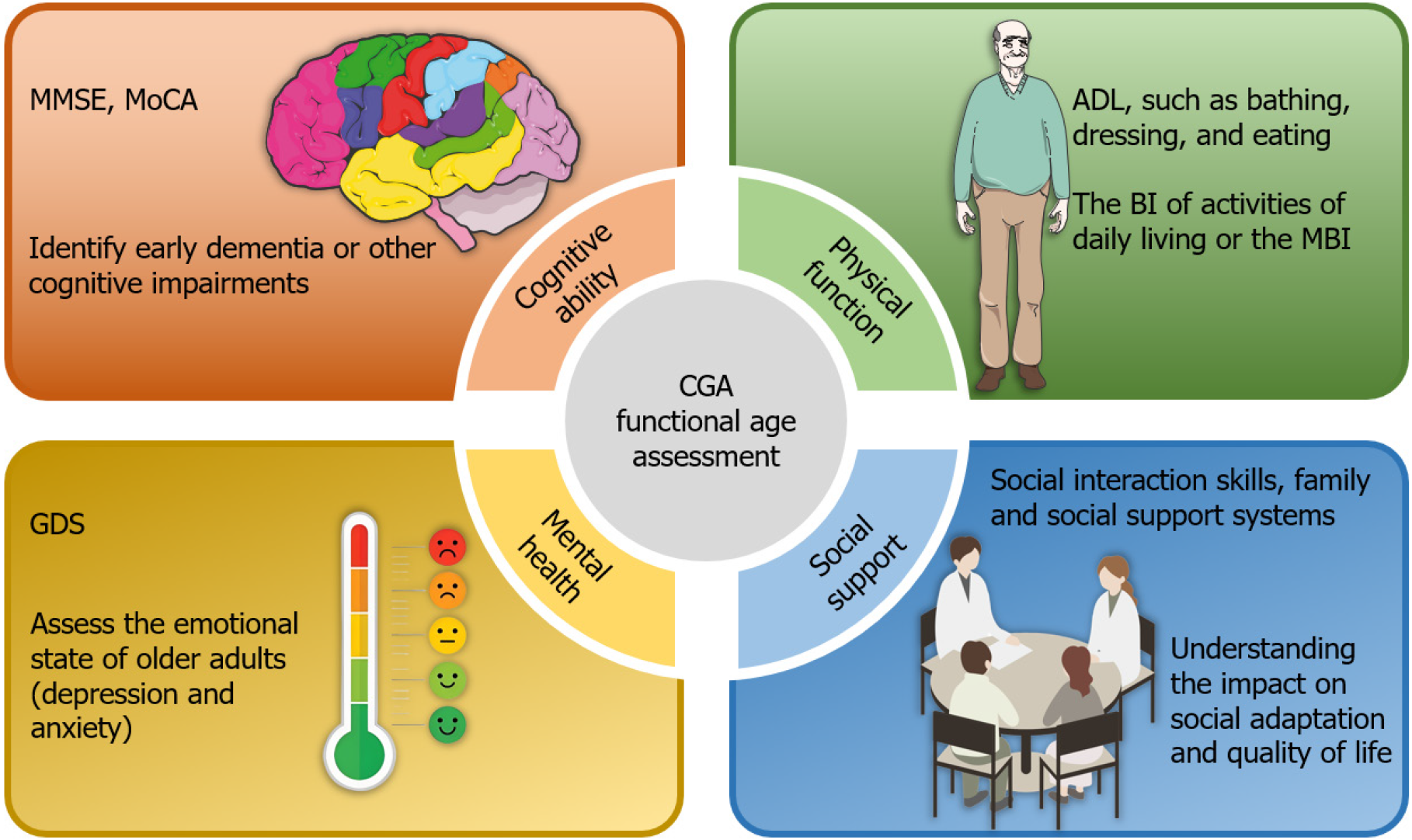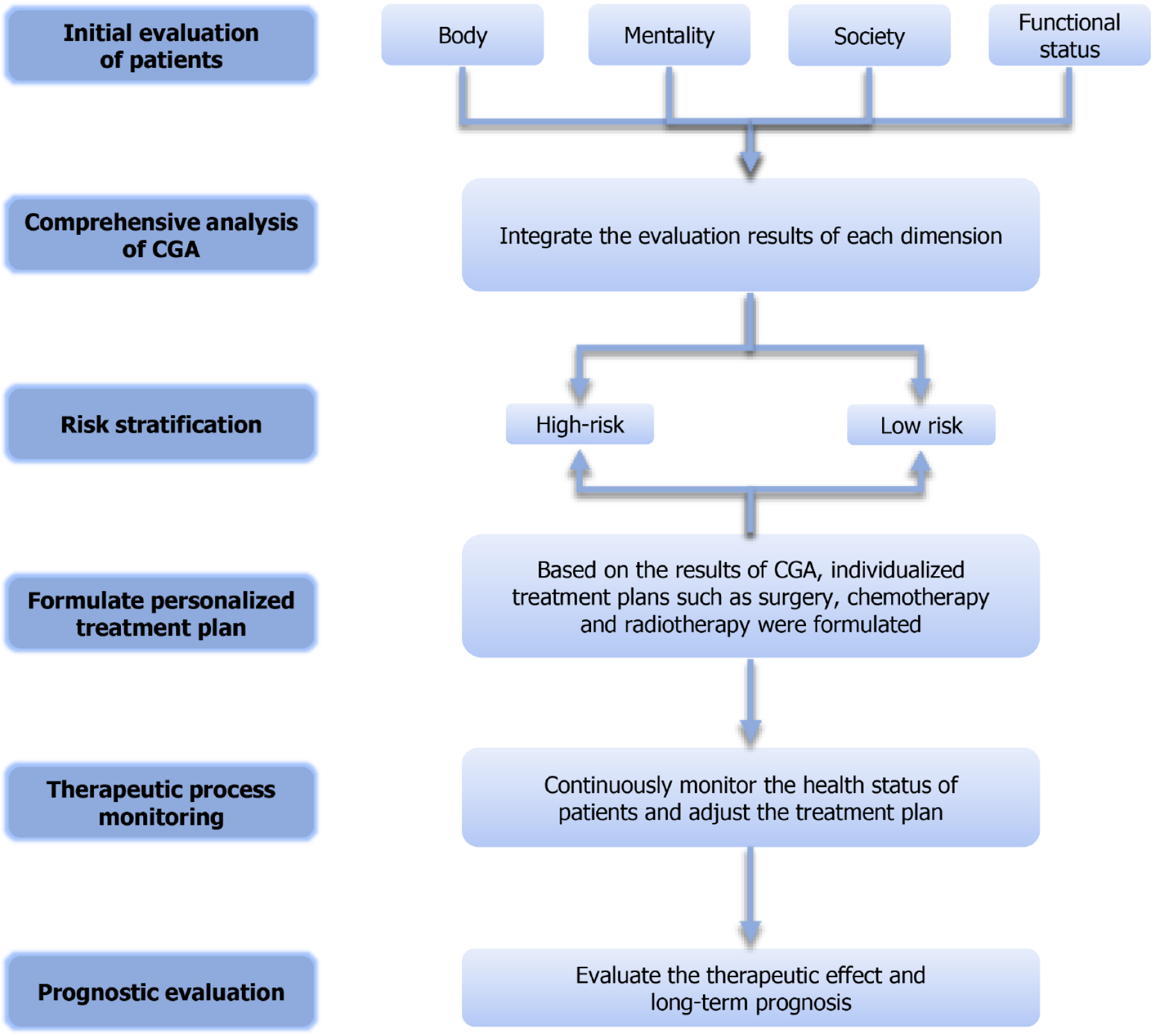Copyright
©The Author(s) 2025.
World J Clin Oncol. Apr 24, 2025; 16(4): 104785
Published online Apr 24, 2025. doi: 10.5306/wjco.v16.i4.104785
Published online Apr 24, 2025. doi: 10.5306/wjco.v16.i4.104785
Figure 1 The four elements of functional age assessment in comprehensive geriatric assessment.
This Figure employs a circular structure to visually represent the four core aspects of functional age assessment in comprehensive geriatric assessment: Cognitive ability, assessed using tools like Mini-Mental State Examination and Montreal Cognitive Assessment to identify early dementia or cognitive impairments; physical function, evaluated through the level of independence in activities of daily living using the Barthel Index or modified Barthel Index; mental health, assessed using the Geriatric Depression Scale to evaluate emotional states such as depression and anxiety; and social support, which focuses on social interaction skills, family, and social support systems to understand social adaptation and overall quality of life. CGA: Comprehensive geriatric assessment; MMSE: Mini-Mental State Examination; MoCA: Montreal Cognitive Assessment; GDS: Geriatric Depression Scale; ADL: Activities of daily living; BI: Barthel Index; MBI: Modified Barthel Index.
Figure 2 Application flow chart of comprehensive geriatric assessment in tumor nursing.
This flowchart illustrates the step-by-step application of comprehensive geriatric assessment in oncology nursing. It begins with a multidimensional evaluation of the patient, covering physical, mental, social, and functional domains. The results are integrated for risk stratification, categorizing patients as high-risk or low-risk. Based on this, personalized treatment plans are formulated, including adjustments to surgery, chemotherapy, or radiotherapy. Continuous health monitoring ensures dynamic treatment modifications, and the process concludes with an evaluation of therapeutic outcomes and long-term prognosis, optimizing care for elderly cancer patients. CGA: Comprehensive geriatric assessment.
- Citation: Li CJ, Gong SM, Shi YJ, Guo YN, Song NN, Jiang LM, Wang YY, Zhang CJ, Wang YB, Li ZP, Wang P, Ruan YH, Shi Z, Li HY, Zhang QJ, Fu WP. Application of comprehensive geriatric assessment in oncology nursing: A literature review on optimizing treatment decisions and patient outcomes. World J Clin Oncol 2025; 16(4): 104785
- URL: https://www.wjgnet.com/2218-4333/full/v16/i4/104785.htm
- DOI: https://dx.doi.org/10.5306/wjco.v16.i4.104785










